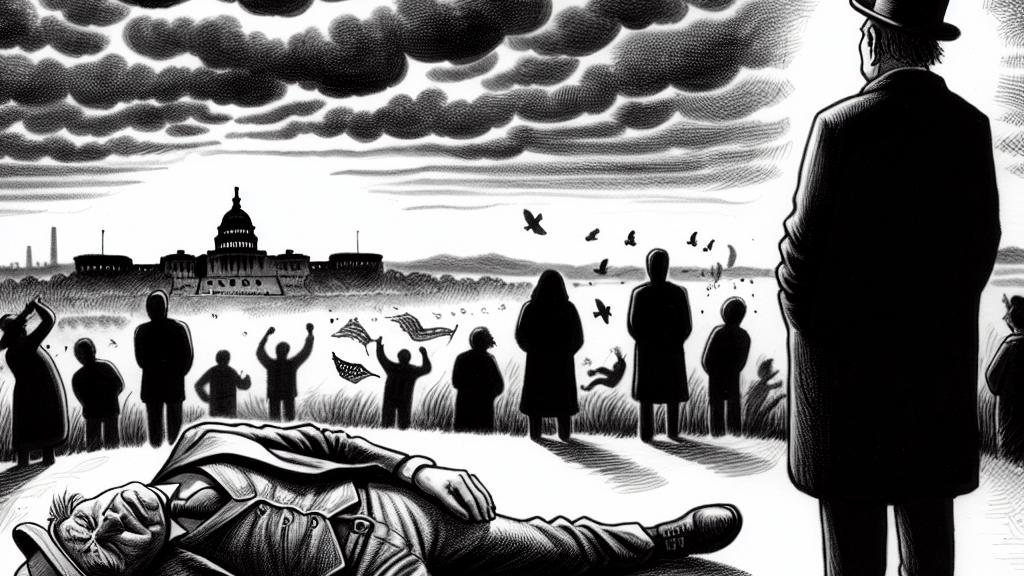Tunisian Presidential Election: Kais Saied Faces Controversy Amid Criticism
Overview
- Kais Saied's quest for re-election ignites intense scrutiny over his autocratic reign.
- The shocking imprisonment of a leading candidate raises alarming questions about election legitimacy.
- A surge of public protests reflects widespread anger and frustration with the current political climate.

Political Climate in Tunisia
As the highly anticipated presidential election in Tunisia approaches, the air is thick with anxiety and uncertainty. President Kais Saied, who once ignited hope in 2019, now finds himself at the center of a storm of criticism. Observers are increasingly labeling him an autocrat as he tightens his grip on power. This tension escalated dramatically with the recent imprisonment of Ayachi Zammel—a potential challenger sentenced just days before the election—for alleged document falsification. This incident highlights a grim reality: many potential candidates have been sidelined, leaving the electoral landscape alarmingly skewed. Tunisians, who revolutionized their country during the Arab Spring, now grapple with the painful suspicion that their dream of a democratic future is slipping away. Citizens are left to ponder whether they will regain their lost freedoms in the face of such oppressive political maneuvers.
Civil Unrest and Opposition Reaction
In recent weeks, the streets of Tunis have become a vibrant stage for civil unrest, with thousands of voices rising in protest against the status quo. Young activists and seasoned opposition leaders alike are demanding transparency and fair elections, echoing the fervor that characterized the Arab Spring. The prominent opposition party, Ennahda, has faced unprecedented crackdowns with the arrest of many of its senior members, provoking outrage and defiance among their supporters. Human rights organizations, including reputable entities like Amnesty International, are closely monitoring these developments, calling them a blatant assault on democratic principles. As leaders like Sarah Yerkes and Agnès Callamard highlight, this election has morphed into a referendum on Saied's authoritarian tendencies, forcing citizens to choose between optimism and despair. In the words of one determined protestor, “This is our moment to reclaim our democracy!”—a sentiment that resonates deeply in a society yearning for change.
What Lies Ahead for Tunisia
Looking toward the future, Tunisia finds itself at a monumental crossroads, facing both daunting challenges and glimmers of hope. Economic struggles plague the nation, with youth unemployment climbing to a staggering 16%, pushing many young Tunisians to brave perilous journeys to seek a better life in Europe. The youth demographic, initially so supportive of Saied, is now disillusioned, haunted by broken promises of economic revival and social justice. To steer the country back to stability, Saied must decisively tackle these pressing issues while simultaneously restoring faith in democratic governance. The critical question looms: will Tunisia's next chapter mark a regression into autocracy or will it reignite the revolutionary spirit of 2011? The answer lies ahead, as the nation’s citizens are set to play an indispensable role in shaping their destiny. The upcoming election may well determine whether Tunisia can reclaim its place as a symbol of hope in a volatile region, or if it will be forced to grapple with the ghosts of authoritarianism once again.

Loading...